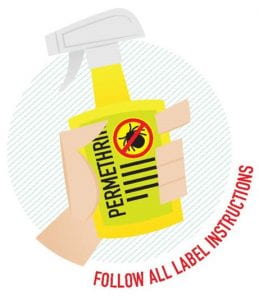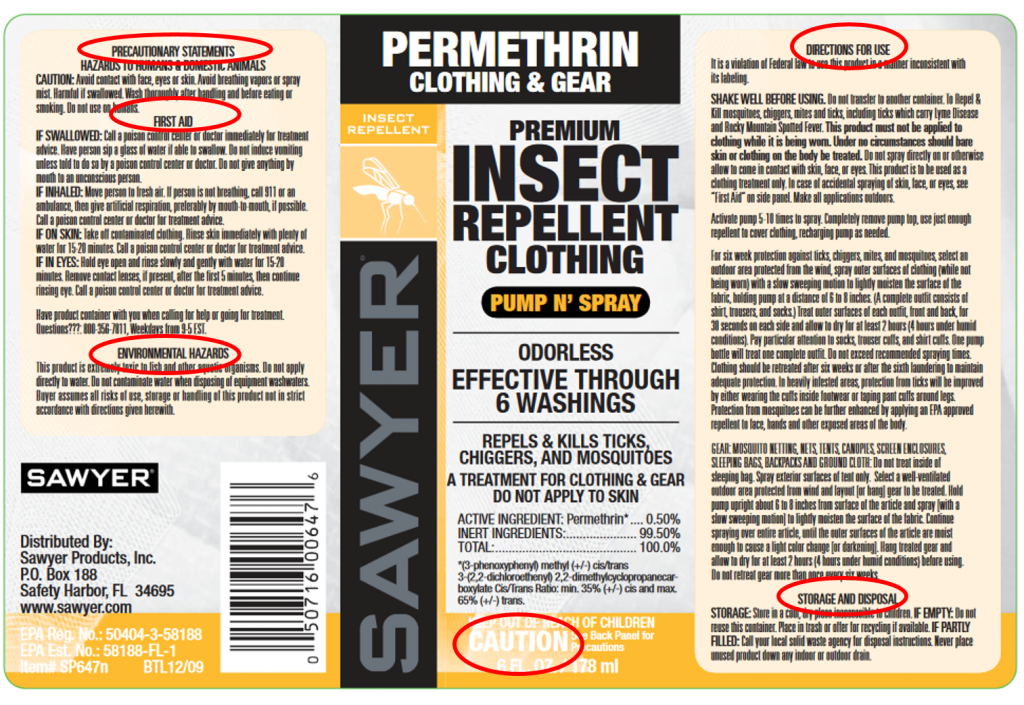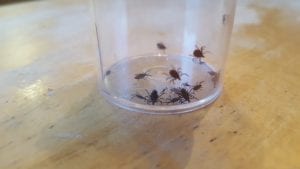“One can never have enough socks.” ―
For Christmas, I gifted my step-family… socks. To be honest, I was a bit surprised by the delight with which the 8 and 10-year-old boys received them. (I didn’t get excited by socks until I was college-aged.) And, in my defense, they were good hiking socks. But my main reason for giving them was so that their mother could treat them with permethrin.
I was asked (by a different relative) if I had treated them before wrapping them up. My answer was no as the permethrin I purchase lasts for six weeks or six washes. This came as a surprise as she thought that if she avoided washing her treated socks, the treatment would last.
And thus, I am writing to remind people to read pesticide labels. I discussed this in some detail in the 2018 blog post, Minimize tick risk while minimizing pesticide risk. That post was prompted by people telling me how they had (unintentionally, of course) applied the spray to their clothing in a manner that risked pesticide exposure. Here I want to focus on ensuring the pesticide you are using does its job.
The front of this brand’s label proudly boasts “EFFECTIVE THROUGH 6 WASHINGS”. You have to read the fine print under DIRECTIONS FOR USE to see “For six week protection against [list of pests]… Clothing should be retreated after six weeks or after the sixth laundering to maintain adequate protection.”

We know that permethrin interferes with blacklegged, American dog, lone star and Asian longhorned ticks’ ability to move and, thus, to bite. But only when applied according to label. So get out your magnifying lens and get in the habit of reading the label before a pesticide is applied – every time.
p.s. I have found permethrin products on store shelves that only last two weeks. Be sure to bring your magnifying glass to the store with you!

p.p.s. Before I am reminded by someone that blacklegged ticks can be active in the next six weeks, I made the decision not to treat the socks based on my step-family’s lifestyle, which makes winter tick exposure slim to none. If you are out in tick habitat regularly, no matter what the season, wearing permethrin treated clothing will help protect you from bites and the disease-causing pathogens that can be passed along.